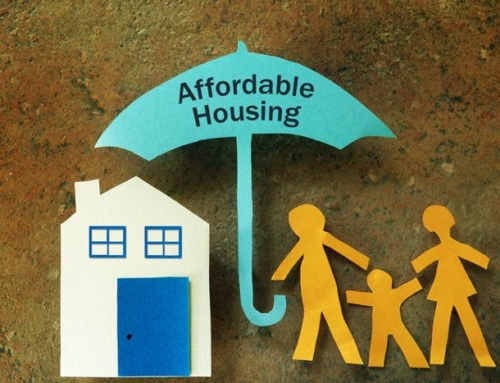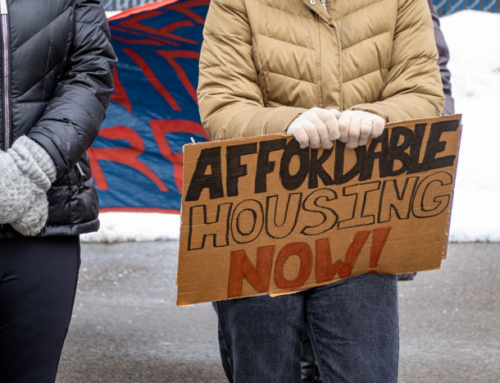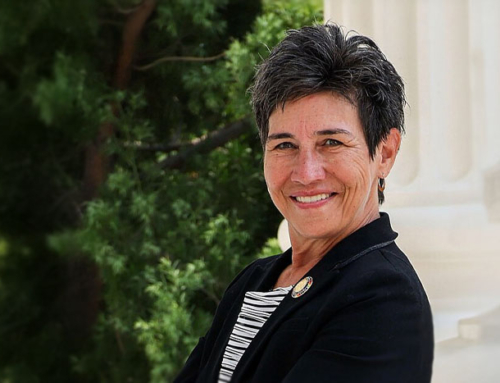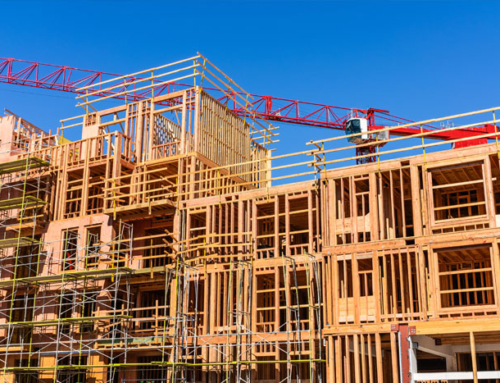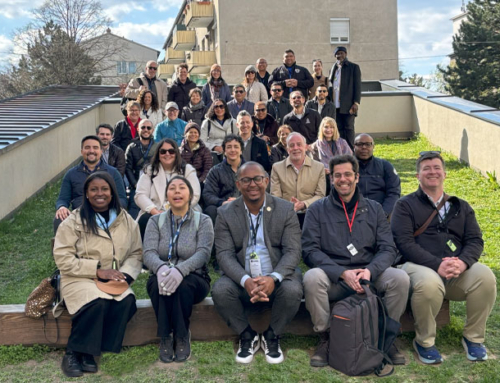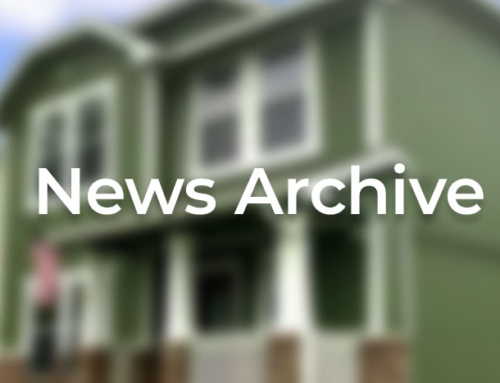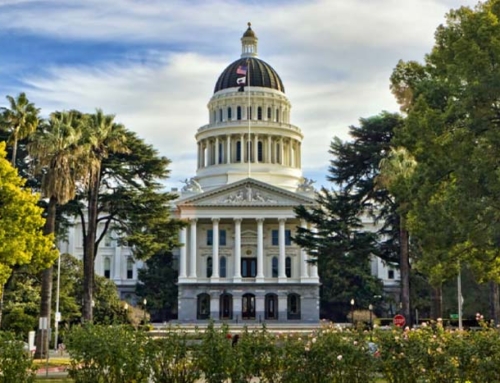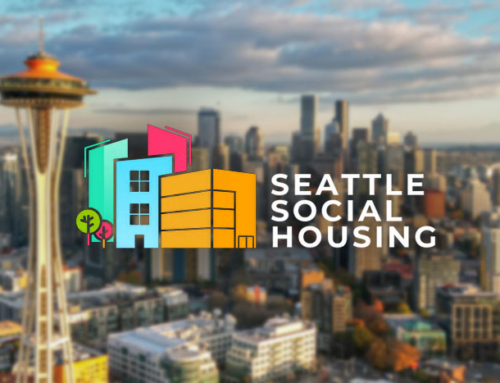The Governor signed the majority of key housing and homelessness bills by Monday, September 30, 2024, concluding another legislative year by signing nearly 1,000 bills. Key themes of the legislative session were housing enforcement and accountability, maximizing density on underutilized properties to reinforce housing production, and accountability for legislation passed in previous years.
The following bills have either been signed or vetoed by the Governor. Bills with an asterisk (*) denote second-year bills.
Bills Signed by the Governor
Produce Housing for All
- AB 1820 (Schiavo, D-Santa Clarita) would allow developers to request a preliminary fee and exaction estimate from localities at the time of a preliminary application. Local agencies would be required to respond within 10 business days.
- AB 1893 (Wicks, D-Oakland) would significantly clarify and modify the “builders remedy,” which is an existing law that states that if a jurisdiction does not have a “substantially compliant” housing element, jurisdictions cannot use its own zoning or general plan standards to disapprove any housing project. The new law will give more certainty to developers, which will likely reduce litigation and the need for court action, and the new Builder’s Remedy projects must comply with certain site restrictions, density limits, and other standards. However, the builder’s remedy projects will also have a lower percentage of affordable housing.
- AB 2243 (Wicks, D-Oakland) amends the language of the Affordable Housing and High Road Jobs Act of 2022 (AB 2011, Wicks). These amendments facilitate the implementation of AB 2011 by expanding its geographic applicability and clarifying aspects of the law that are subject to interpretation. Collectively, the changes in AB 2243 would improve AB 2011 and make it easier to build more housing in the right locations (this includes near freeways and regional mall sites up to 100 acres). It is important to note that the Senate amendments removed the expansion of the street width, the provision that would have allowed for the conversion of office buildings outside of commercial corridors, and the provision that would have allowed production on sites located near extracts or refines of oil or natural gas. The Senate also clarified that if a local government has a local affordable housing requirement, the housing development project shall meet the affordability level of a local affordable housing requirement if it is a deeper affordability level than required by the Act.
- AB 2553 (Friedman, D-Burbank) would further limit local impact fees by extending the definition of what constitutes housing near transit, which would allow more housing developments to pay lower local vehicular traffic impact fees, reflecting lower rates of car trips from those buildings.
- AB 2580 (Wicks, D-Oakland) would require local governments to monitor how new historic designations could impact their ability to meet housing needs under existing state law and report new historic buildings and districts to the California Department of Housing and Community Development (HCD).
- AB 2729 (Patterson, R-Placer) extends all project entitlements for 18 months, allowing projects on pause due to high interest rates to retain a key permit until market conditions improve.
- SB 440 (Skinner, D-Oakland)* would authorize two or more local governments to establish a regional housing authority to raise, administer, and allocate funds and provide technical assistance for affordable housing development.
- SB 450 (Atkins, D-San Diego) eliminates roadblocks erected by some local jurisdictions in implementing SB 9 projects. It prohibits jurisdictions from creating objective zoning, subdivision, or design standards that are not applied to the underlying single-family zoning, sets up specific timeframes for application action, and increases the state’s authority to hold jurisdictions accountable.
- SB 937 (Wiener, D-San Francisco) would temporarily defer cities’ collection of development fees (also known as impact fees), allowing more housing projects to pencil out. The legislation also extends entitlements, allowing projects on pause due to high interest rates to retain a key permit until market conditions improve. SB 937 provides builders with the flexibility to navigate challenging market conditions while protecting a key source of revenue for local governments.
- SB 1077 (Blakespear, D-Encinitas) aims to harmonize coastal permitting requirements with state accessory dwelling unit (ADU) law, thereby making it easier to apply for and receive ADU permits to build them. SB 1077 directs the Coastal Commission to work in coordination with the California Department of Housing and Community Development (HCD) to develop guidance for local governments to harmonize their ADU ordinances with their Local Coastal Programs (LCPs). The goal is to resolve conflicts in mandates between the Coastal Commission and HCD.
- SB 1211 (Skinner, D-Oakland) would allow more detached ADUs on properties with multifamily housing. Under SB 1211, the number of detached ADUs allowed to be built on properties with apartments, condos, or townhouses with just a ministerial permit would also quadruple from 2 to 8. In addition, if a multifamily property owner decides to replace a carport or driveway with an ADU, they would not be required to replace that parking.
- SB 1210 (Skinner, D-Oakland) would require electrical, gas, sewer, and water service utilities, with exceptions, to post estimated fees and timeframes for new service connections needed to connect new housing construction permits. Prior versions of the bill capped and placed limits on these fees.
- SB 1037 (Wiener, D-San Francisco) creates new legal remedies that the Attorney General can use to enforce the adoption of housing element revisions or any state law that requires a local government to ministerially approve any planning or permitting application related to a housing development project. These remedies include financial penalties and fines.
Preserve Vulnerable Housing
- AB 2533 (Juan Carrillo, D-Palmdale) would create an amnesty program for unpermitted ADUs, allowing them to be brought up to housing code standards and legalization without significant penalty.
- AB 2926 (Kalra, D-San Jose) would require projects with expiring affordability covenants to sell to qualified preservation buyers.
Promote Equity and Inclusion
- AB 3093 (Ward, D-San Diego) would formally require the State to consider how housing assistance, policies, and goals affect people experiencing homelessness in the Housing Element and Regional Housing Needs Allocation (RHNA) process and to require RHNA to allocate units for acutely low- and extremely low-income households.
- SB 1395 (Becker, D-Menlo Park) would extend exemptions under the California Environmental Quality Act (CEQA) for homeless shelters and Low-Barrier Navigation Centers, which are streamlined access points designed to reduce obstacles for unhoused individuals seeking shelter and services. The bill would also broaden the scope of state programs under Housing First policies to include emergency shelter or interim housing services.
Prevent Displacement
- AB 2835 (Gabriel, D-Encino) would make it easier for homeless individuals to stay at privately owned motels and hotels for longer than 30 days.
Protect Tenants and Small Landlords
- AB 2304 (Lee, D-Milpitas) would close a loophole related to disclosure when tenants are party to a civil eviction process. The bill ensures tenants are not unfairly penalized on rental applications if they have won their civil eviction cases.
- AB 2801 (Friedman, D-Burbank) revisits security deposit regulations, tightening the criteria for landlords’ claims to justify not returning a deposit and emphasizing the need for landlord transparency with photographic evidence of repairs or cleanings that justify using a deposit.
- AB 2347 (Kalra, D-San Jose) would provide eviction mis-service protections, extending the time for the defendant of an eviction notice to file a response.
- SB 924 (Bradford, D-Inglewood) would eliminate the sunset date of a current law that requires affordable housing landlords to offer tenants the option of having their rental payments reported to consumer reporting agencies to help build credit. The current law’s provisions expire on January 1, 2025.
Bills Vetoed
Promote Equity and Inclusion
- AB 1788 (Quirk-Silva, D-La Palma) would establish homeless adult and family multidisciplinary teams in each county to expedite outreach and services to individuals experiencing homelessness. The bill would additionally allow the sharing of confidential information to coordinate supportive services.
- AB 1840 (Arambula, D-Fresno) would include undocumented persons in the definition of a first-time homebuyer for the California Dream for All downpayment and shared equity program.
Notable Bills that Did Not Pass the Legislature
Unfortunately, several notable bills did not make it through the session, including:
Produce Housing for All
- AB 1657 (Wicks, D-Oakland)* would authorize the $10B Affordable Housing Bond Act of 2024 to replenish and expand the state’s affordable housing programs, including affordable rental housing for lower-income families, homeownership opportunities, and supportive housing for people experiencing homelessness.
- AB 2909 (Santiago, D-Los Angeles) would expand the Mills Act, an economic incentive program in California for the restoration and preservation of qualified historic buildings by private property owners to further incentivize converting commercial buildings to residential uses. Specifically, the bill would make buildings that are at least 30 years old and located in commercial zones eligible for Mills Act contracts and require that property tax savings be reinvested in retrofitting and repurposing existing buildings to create new residential rental units.
- AB 2728 (Gabriel, D-Encino) would update SB 4 by requiring the jurisdictions to develop a plan in the housing element that incentivizes and promotes the production of very low, low-, and moderate-income housing on land owned by faith-based institutions and independent institutions of higher education. Jurisdictions would be required to track progress as part of their annual progress report, and HCD would have to develop a list of state grants to support such development.
Preserve Vulnerable Housing
- AB 1789 (Quirk-Silva, D-La Palma) would expand the California Housing and Community Development Department’s (HCD) Portfolio Reinvestment Program by authorizing the provision of loans and grants for rehabilitating projects that are at least 15 years old and have insufficient access to private/public resources to complete necessary rehabs. This bill would give priority to projects that have expired covenants or covenants that have less than 10 years remaining or are otherwise at risk for conversion.
Prevent Displacement
- AB 1333 (Ward, D-San Diego)* would prohibit the bulk sale of two or more parcels of single-family homes to defined institutional investors, granting families and individuals the same opportunity to purchase homes that would otherwise be sold directly to institutional investors.
© LeSar Holdings/LeSar Development Consultants. All Rights Reserved. Please be advised that any republishing of copyrighted material provided by our organization, in whole or in part, requires prior written authorization. For permission, please reach out to [email protected]. We appreciate your understanding and compliance in upholding copyright laws.






